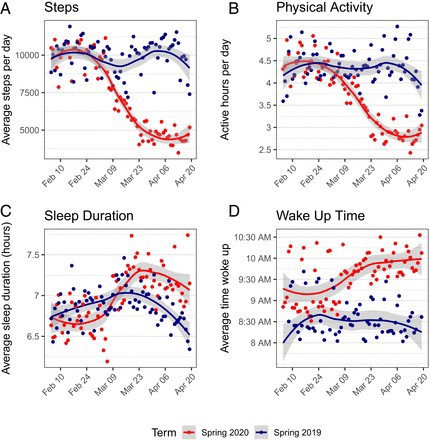The next year President Nixon appointed a Special Consultant who convened a bipartisan White House Conference on Food, Nutrition, and Health to “put an end to hunger in America for all time.” More than 2,700 private, public, and academic sector participants huddled over three days to submit thousands of recommendations to 5,000 attendees. Within two years, 1,600 of their top 1,800 picks were implemented, including the Food Stamp Program, the School Lunch Program and the Supplemental Feeding Program for Women and Children. The programs save and improve lives to this day.
Build Mental Health Back Better
Now, as then, we face a crisis that brooks no delay. Since March 2020, half of us report that our mental health has worsened under the Covid pandemic. Many Americans are or will be, struggling for years with mental health challenges due to anxiety, social isolation, child-caring while working from home, loss of loved ones, small business closures, and layoffs.
Before the pandemic, the National Alliance on Mental Health estimated that untreated mental illness cost America nearly $300 billion every year in lost productivity. At the time, 1 in 5 Americans was affected. The human costs were incalculable even then.

Source: https://www.pnas.org/content/118/9/e2016632118#sec-4
Today the depth of the pain underlying this mental health pandemic is reflected in sharply rising overdose rates, depression and anxiety diagnoses, substance abuse, domestic violence calls, and suicidal ideation (especially among the young and very young).
The cumulative effect is paralyzing, impairing our ability to tackle daily responsibilities, maintain relationships, accept differences, and solve the issues our deeply divided and unequal nation faces.
A White House Commission on Mental Health
President-Elect Biden, having experienced incalculable loss in his own life, has often spoken of mental health as a human right. For him, mental health is health. He promised to alleviate the stigma that keeps individuals from seeking support and to lower barriers to accessing needed resources, regardless of financial circumstances.
The Biden-Harris Administration should therefore rapidly appoint a White House Commission on Mental Health to research the issue, nominate a mental health czar, and convene a White House conference to improve the country’s collective well-being to deal with the challenge of our lifetime.
The first focus should be to assist those most vulnerable and hurt by COVID-19 in terms of mortality and economic dislocation. These include essential workers, health care professionals, and people of color. We should provide premium-free access to a new public option for those who would be eligible for Medicaid but for their state’s inaction and ensure this option covers the full scope of Medicaid benefits. Also, those making below 138% of the federal poverty level should be automatically enrolled in the premium-free option when they interact with institutions (such as schools) and programs (such as SNAP) for low-income populations.
To tackle the addiction crisis, let’s build on the ACA’s designation of substance use disorder treatment and mental health services as essential insurance benefits and expand Medicaid, which plays an increasing role as a payer for substance use disorder services.
Equally urgent is promoting the resilience of our young adults and school-age children whose lives and schooling have been upended over the last year. We must at least double the number of psychologists, guidance counselors, nurses, social workers, and other health professionals employed in our schools, partner with colleges to expand the pipeline of these professionals, especially from under-represented groups. Let’s also triple funding in Title I (federal funding for schools that serve areas with high poverty), fully fund the Individuals with Disabilities Act, and invest tap community resources to support the emotional and developmental well-being of students. We should also track the impact of our interventions.
Finally, uphold and defend parity and access to mental health services across the country, including via telehealth. The Mental Health Parity and Addiction Equity Act defined mental health treatment as an essential health benefit and set clear national standards that raise the bar for mental health coverage, to include rehabilitative services and other forms of behavioral health care. And while large companies have stepped up their mental health support, nearly half of U.S. workers are freelancers or part-timers who should not miss out on coverage and access.
“A Time to Heal”
We cannot unite the country, one of the president-elect’s stated goals, and “build back better” without solid, equitable mental health. Making it a strategic priority and establishing America’s leadership in this area is imperative to save and improve lives, accelerate our economic recovery, and boost our collective happiness. It is also desperately needed to help us to mourn the 265,000 citizens we have already lost to Covid and support the 6 million who survived and are likely to struggle with depression, anxiety, mood changes, and “brain fog.”
The food assistance provided by the work of the 1969 Conference decreased malnutrition and hunger across the country in the 1970s. It is time to mount such a collective response again. The return on investment is already clear: the World Health Organization estimates that every $1 invested in scaling up treatment for common mental health disorders yields $4.
Authors: John A. Quelch (Professor Emeritus, Harvard Business School, Dean of the University of Miami Patti and Allan Herbert Business School. University of Miami’s vice provost for executive education and Leonard M. Miller University Professor) and Carin-Isabel Knoop (Executive Director, Harvard Business School, Case Research & Writing Group) are the co-authors of Compassionate Management of Mental Health in the Modern Workplace.
Miami Patti and Allan Herbert Business School. University of Miami’s vice provost for executive education and Leonard M. Miller University Professor) and Carin-Isabel Knoop (Executive Director, Harvard Business School, Case Research & Writing Group) are the co-authors of Compassionate Management of Mental Health in the Modern Workplace.




